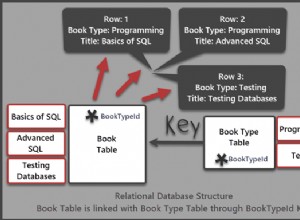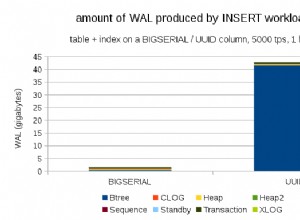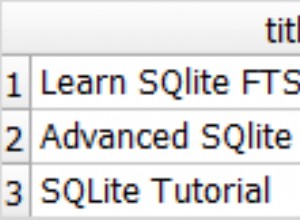Okej, więc znalazłem rozwiązanie, ale dodałem surowe zapytanie z Joins, w którym dodałem moje wymagane warunki wszędzie tam, gdzie potrzebowałem i pobrałem identyfikatory głównego modelu. Następnie pobrałem dane za pomocą sequelize, dodając te identyfikatory w klauzuli where. Mój kod wygląda teraz tak.
const { limit, offset } = dbHelpers.GetPagination(
req.query.limit,
req.query.offset
);
let querySting = "(SELECT count(DISTINCT p.id) FROM ModelA p " +
"JOIN ModelB cp ON cp.pId = p.id " +
"JOIN ModelC cs ON cs.cpId = cp.id " +
"JOIN ModelD ms ON ms.csId = cs.id " +
"LEFT JOIN ModelE sa ON sa.msId = ms.id " +
"LEFT JOIN ModelF pp ON pp.msId = ms.id " +
"LEFT JOIN ModelG sta ON sta.ppId = pp.id " +
"LEFT JOIN ModelH ol ON ol.cdId = cd.id " +
"WHERE " //you can add your conditions here
+ " ORDER BY p.id desc LIMIT " + offset + ", " + limit + ")"
const rawQuery = await models.sequelize.query(querySting,
{ type: QueryTypes.SELECT })
const Ids = rawQuery.map(result => result.id)
const results = await models.ModelA.findAndCountAll({
where: {
id: Ids
},
include: [
{
model: models.ModelB,
as: "ModelB",
include: [
{
model: models.ModelC,
separate: true,
},
{
model: models.ModelD,
separate: true,
include: [
{
model: models.ModelE,
separate: true,
{
model: models.ModelF,
separate: true,
},
],
},
],
},
],
},
{
model: models.ModelG,
include: [
{
model: models.ModelH,
as: "ModelH",
},
],
},
],
});




